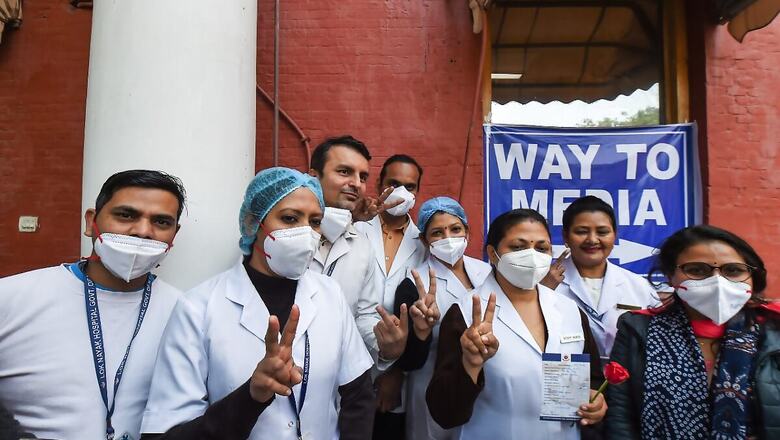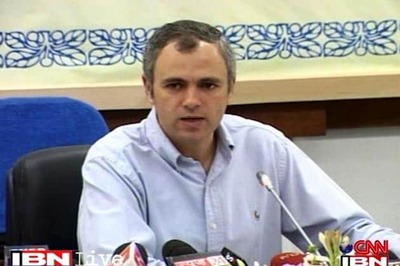
views
The pandemic has also brought forth the need to invest in strong secondary and tertiary care systems. This year’s budget proposed a viability gap funding for establishing hospitals in tier 2 and tier 3 cities under the public-private partnership (PPP) model. It is indeed a welcome step that alongside our party’s vision of having one medical college per district can be helpful in filling critical gaps in healthcare access, especially for the poor and vulnerable. If these moves can be supported by donors and governments by offering partial occupancy/offtake guarantees to operators, then, as has happened historically in the vaccine industry, this could further augment the risk-bearing capacity of those interested in this national agenda.
Converting district hospitals to medical college in PPP mode is another welcome step. What we now need is to not only continue on this path, but at a stronger momentum than before. A strong primary care network should, however, continue to be the anchor of our health regime. The health workforce must be expanded at all levels of care—the dismal doctor-to-population and nurse-to-population ratios have been the subject of discussions for long.
Our government took a decisive step to substantially increase the number of seats at medical colleges and usher in transparency in admissions. The incentives for front-line workers were enhanced and they have been brought under the ambit of insurance nets. Alongside, we must also build a dedicated cadre of epidemiologists, and social and behavioural scientists within our health cadre. Support from state governments will be crucial here.
Another issue that needs urgent attention is import substitution of bulk drugs (API). This has implications not only for health but for national security as well. According to the Government of India’s own estimates, India accounts for about 10 per cent of the world’s production by volume and 1.5 per cent by value. This points to the high demand of Indian products in the global market. India’s role as the ‘pharmacy of the world’ is well acknowledged by experts. However, ironically, it imported nearly USD 2.5 billion dollars’ worth of bulk drugs from China in 2018–19. Faced with the rise of competition from China in the production of bulk drugs, the sector has been urging the government to back domestic industry by creating industry clusters. This is yet to take off despite the issue being on the government’s scope for very long. Likewise, the Indian medical devices market has been dominated by imported products, which comprise around 70 per cent of the total sales.
It is against this backdrop that the government has decided to give a push to domestic manufacturing of medical devices to reduce India’s dependence on imports. The government’s move to approve a stimulus package of approximately Rs 3,800 crore to promote medical devices manufacturing in India is a step in the right direction. India’s need to produce its own bulk drugs and medical devices can perfectly align with its ambition of becoming an exporter to markets such as Africa. Given this context, India should consider embracing economies of scale and increasing the production to aggressively compete with the Chinese and other foreign players.
A policy shift is necessary to make a meaningful impact. This also brings me to another area of attention: vaccine stockpiling. Although India is a leading supplier of vaccines (one out of every six children over the world receives vaccines manufactured in India), we don’t have a stockpiling policy of vaccines for our own population (if they are available) and in cases where vaccines are not available, there is almost no focus on investing in research and development (R&D). The government needs to focus on these issues as emergency stockpiles can play an essential role both as part of a comprehensive disease-control strategy and in maintaining global health security.
A related issue is the complex drug regulatory regime in the country, which adds to the coordination burden. Major economies across the world have just one agency/ministry in the effort. It is counterintuitive to have both the Ministry of Health and Family Welfare (MoHFW) and the Ministry of Chemicals and Fertilizers being involved here. There is a strong case to integrate all these functions within the MoHFW itself, a point that has been made several times in the past by many experts.
Dr Sanjay Jaiswal represents Paschim Champaran (Lok Sabha constituency) in Bihar since 2009 as a Bharatiya Janata Party member. He also holds MBBS and MD degrees and is a member of the governing body of the All India Institute of Medical Sciences Patna.
Read all the Latest News, Breaking News and Coronavirus News here. Follow us on Facebook, Twitter and Telegram.




















Comments
0 comment